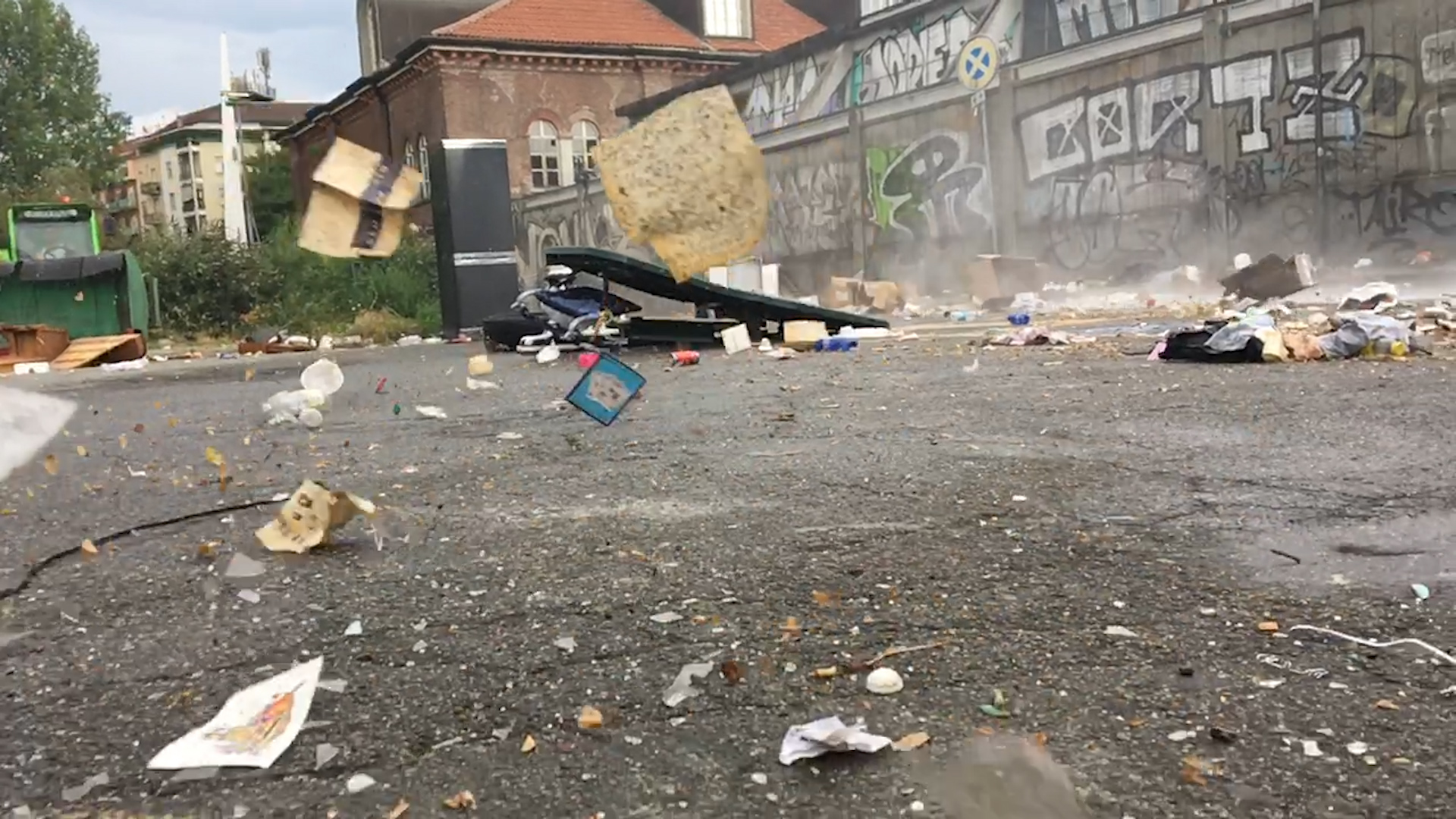Aurora, quartiere della periferia nord di Torino, cinque uomini sono uniti dalla fatica del quotidiano. Sono risucchiati in una giungla di cemento decadente, dove i rifiuti volano soffiati dal vento e una mongolfiera si alza per controllare il mondo dall'alto. Hanno età e origini diverse e, nell'attesa di un momento straordinario che dia valore all'esistenza, loro resistono. Mario, Wail, Damas, Donato e Diego, lottano per un bagno al mare, un'operazione chirurgica attesa da tempo, la costruzione di un carretto ambulante che porti musica e allegria, un aiuto per un lavoro fatto in completa solitudine e si sfiorano, camminando nello stesso quartiere. Lottano e attendono, come l’inizio di un nuovo giorno.
Aurora è una zona di confine, un quartiere di Torino che offre paesaggi urbani di una bellezza scomposta e meticcia: i graffiti sui muri, i palazzi di costruzione ottocentesca che si mischiano ad architetture anni ’60 – ’70 e a moderni edifici degli anni 2000 che restituiscono il senso del passare del tempo in un'ottica di continuità. Qui, i non luoghi, fabbriche e spazi in disuso, sono giganteschi e abbandonati. Nel 1850 Borgo Dora contava più di 20.000 abitanti, per gran parte operai, tanto da essere considerato il quartiere operaio più grande di Torino. Durante la seconda guerra mondiale fu fortissima la resistenza antifascista, il quartiere divenne poi zona di immigrazione nel secondo dopoguerra. In Aurora si gioca la partita dell'integrazione, una partita fatta di azioni concrete seppur ordinarie, come le giornate vissute dai cinque protagonisti del film. Ho conosciuto i protagonisti incrociandoli per le vie del borgo. Ho voluto trasportare questa dimensione di passaggi e di incontri all'interno del film cercando di descrivere il movimento delle persone che abitano il quartiere, in un quadro di continua costruzione e distruzione identitaria che si determina quando un territorio si apre a importanti flussi migratori. In un quadro di continua distruzione e costruzione che sostituisce il vecchio con il nuovo. Aurora è anche un nome femminile, oltre che il momento in cui un nuovo giorno ha inizio: entrambi gli aspetti sono presenti nel film, nel primo caso come assenza della figura femminile nelle storie narrate, nel secondo come augurio per nuovi incontri, nuove relazioni o forse nuovi percorsi di vita lontani dal quartiere.
